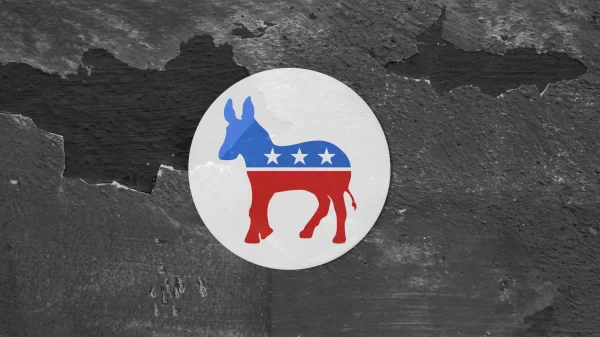Alabama is a confusing state.
A state that prides itself on its hardworking, blue-collar image but somehow turned out overwhelmingly to vote for the (alleged) billionaire, reality TV star for president was just as bi-polar during Tuesday’s primary runoff election.
On one hand, voters seemed to want to rid themselves of long-serving, stagnant politicians, rejecting Democrats Alvin Holmes, John Knight and Johnny Ford and Republicans Twinkle Cavanaugh and Gerald Dial. They seemed to be saying that they wanted ethics and term limits and candidates that were more responsive and energetic.
But on the other hand, still standing at the end of the night were Steve Marshall, Martha Roby and Larry Stutts. So, voters were also saying they were cool with a complete lack of ethics, a complete disregard for constituents and a completely awful human.
Maybe this is why pre-election polling in Alabama is always so screwed up. How can a pollster figure out what you people want when even you don’t know?
So, let’s try to dissect this a bit and come up with a few answers.
Let’s start with the Democrats, because they’re easier to understand.
Holmes and Knight, with a combined 70 years of experience serving in the Alabama House, lost to two dudes who have combined to serve for exactly zero years in any state office. David Burkette, who beat Knight for what seemed like the 50th time in the past year, has served as a city councilman in Montgomery, but that’s the extent of their political experience. Kirk Hatcher, who I couldn’t pick out of a lineup with The Beatles, has zero political experience.
All of this fits with a recent trend in the Democratic Party to push for candidates who relate better to real, everyday people. They believe the old-school guys, particularly the multi-term lawmakers, are out of touch with the real people they serve and are selling them out.
And those voters are right.
For example, while I’ll happily vote for Chuck Schumer over pretty much any dollar-seeking, Bible-thumping Republican, I’d sure like to have an option that isn’t sitting right in the middle of the big banks’ pockets.
And so, the Dems have decided to clean house wherever it’s possible.
It was possible in Montgomery.
Republicans, however, are a different story, which is usually the case. Because while certain factions of the GOP love to play up this alleged independent streak they claim to have, at the end of the day, it’s hard for them to turn their backs on the guy they came in with.
They get trapped by the lights and sparkle of the incumbent’s deep pockets.
Or at least they used to.
Before Twinkle turned dull and Dial time ran out.
In those races, Republicans voted against the lifelong politicians, putting Will Ainsworth and Rick Pate, respectively, into office.
Ainsworth’s win was particularly satisfying, yet also so confusing. He’s a pro-ethics, pro-term limits guy who once stood up to Mike Hubbard and told him he needed to go.
How do you vote for a guy like Ainsworth and then also vote for Steve Marshall? Or Larry Stutts?
Marshall, in particular, has governed pretty much the opposite of Ainsworth and former AG candidate Alice Martin, who picked up nearly a third of the votes in the primary. Marshall’s not chasing crime and corruption. His major accomplishments have been weakening the state’s ethics laws — a move the business community rewarded him for — and pushing back against the law that outlaws political action committee (PAC)-to-PAC transfers.
Marshall is OK with such transfers now that he’s raking in millions from PACs doing exactly what is outlawed.
Speaking of outlaws, I’m not sure how Stutts is even on the ballot, much less still winning GOP elections. He has been nothing but an embarrassment, selling out women and children and selling out everyone else fairly routinely.
And yet, he won.
I just don’t get it. At the end of these elections, there’s supposed to be a pattern. We’re supposed to be able to look at who won and who lost and tell people what it all means. That voters were tired of this, or happy about that, or that they want a certain type of candidate.
Not in Alabama.
We apparently do things a bit different here.




















































